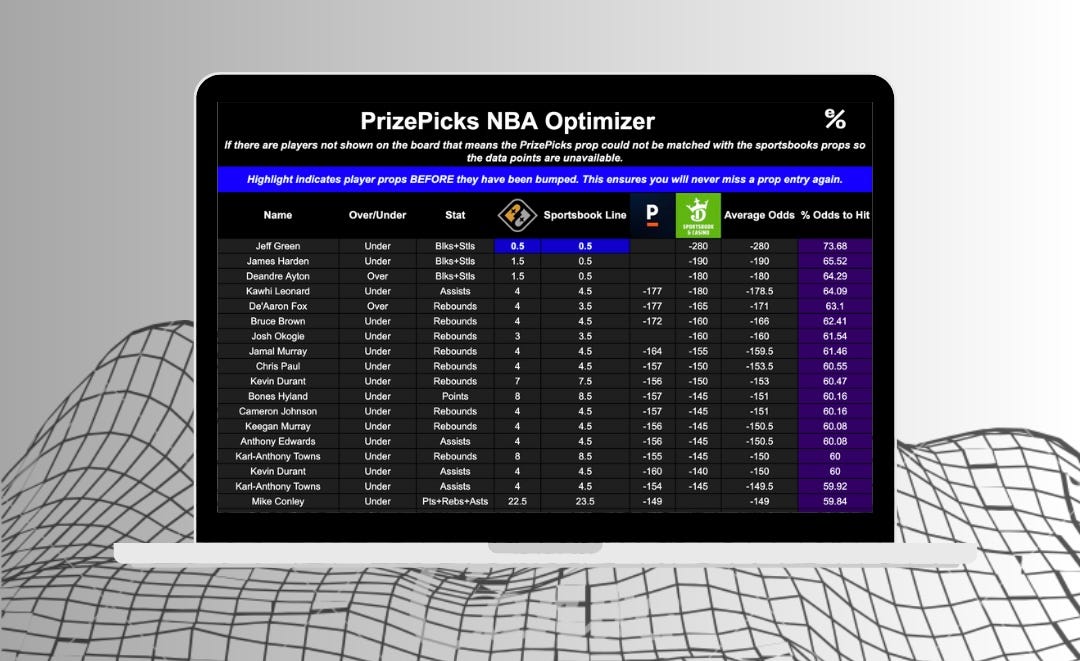Bridal Bliss Insights
Your go-to blog for all things weddings, trends, and bridal elegance.
Betting on Numbers: The Surprising World of Sportsbook Data Analysis
Unlock the secrets of sportsbook data analysis! Explore how numbers can change your betting game and boost your winning strategies today!
Understanding the Basics: How Sportsbook Data Analysis Works
Understanding the Basics of sportsbook data analysis is essential for anyone looking to make informed betting decisions. At its core, sportsbook data analysis involves the systematic examination of various statistical metrics and trends related to sporting events, which helps bettors evaluate the probability of different outcomes. Key elements such as player performance stats, team rankings, and historical matchups play a crucial role in this analysis. By collecting and interpreting these data points, bettors can identify value bets — wagers where the potential payout exceeds the risk based on their calculated probabilities.
One of the fundamental tools in sportsbook data analysis is the use of predictive models, which utilize algorithms to process vast amounts of data efficiently. By employing techniques such as regression analysis and machine learning, bettors can create models that predict game outcomes with greater accuracy. Moreover, bettors often leverage real-time data feeds and analytics platforms to stay updated on shifts in player conditions or team dynamics that might influence odds. Ultimately, mastering these analytical techniques empowers bettors to navigate the complexities of sports betting with enhanced confidence and precision.

Counter-Strike is a highly popular team-based first-person shooter game that pits terrorists against counter-terrorists in various missions. Players can engage in intense multiplayer matches, showcasing their skills in tactical gameplay. For those interested in gaming promotions, check out this cloudbet promo code to enhance your gaming experience!
The Power of Predictive Analytics in Sports Betting
The Power of Predictive Analytics in Sports Betting lies in its ability to analyze vast amounts of data to forecast outcomes of sporting events. By leveraging historical data, player statistics, and even real-time game conditions, predictive analytics allows bettors to make informed decisions. With advanced algorithms and machine learning models, data scientists can identify patterns and trends that human analysts might overlook. This insightful approach not only enhances betting strategies but also increases the chances of success in a landscape that is often unpredictable.
One of the key benefits of predictive analytics is the capability to reduce risks associated with sports betting. Instead of relying solely on gut feelings or past performances, bettors can use quantitative data to assess the probabilities of various outcomes. This objective methodology helps in making smarter bets and managing bankrolls more effectively. As the sports betting industry becomes increasingly competitive, understanding and utilizing predictive analytics will empower bettors to gain a crucial edge over their competitors.
What Can Historical Data Reveal About Future Game Outcomes?
When analyzing the world of competitive games, whether they be sports, eSports, or board games, historical data serves as a crucial component in predicting future outcomes. By examining past performances, player statistics, and team dynamics, enthusiasts and analysts can identify trends and patterns that often recur. For instance, historical data might reveal that a particular team excels in high-pressure situations or that certain players perform better when playing at home versus away. This information empowers fans and bettors alike to make informed decisions based on empirical evidence rather than mere speculation.
Furthermore, the evolution of data analytics in gaming has allowed for a deeper understanding of the factors that contribute to winning outcomes. Utilizing machine learning algorithms and sophisticated statistical models, analysts can process vast amounts of historical data to forecast future results with greater accuracy. By considering variables such as player injuries, recent form, and head-to-head matchups, predictions can be refined to account for changing circumstances. Ultimately, understanding how historical data correlates with future game outcomes not only enhances the viewing experience but also provides strategic insights for coaches, teams, and dedicated fans.